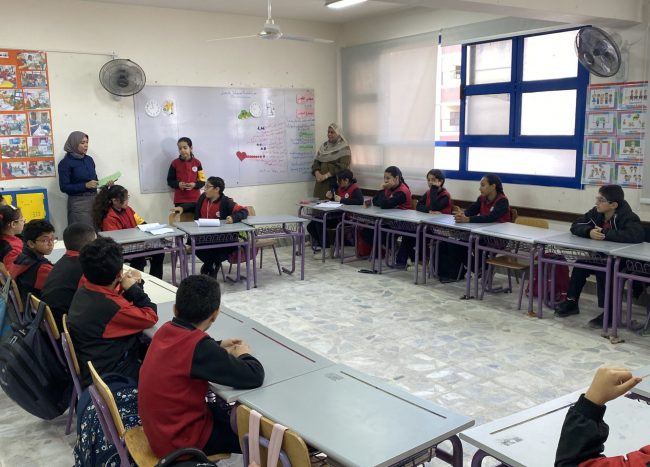「非認知能力の育成に向けた特別活動の国際化と質保証に関する研究」とは
本研究の正式名称は、「非認知能力の育成に向けた特別活動の国際化と質保証に関する研究~日本型教育先進地エジプトにおけるTokkatsuの効果検証~」です。文部科学省EDU-Portニッポン「令和5年度 予測困難な時代の学びを保障する学習手法の共有と海外展開に関する調査研究」として、筑波大学を代表機関とするチームが受託したプロジェクトになります。
本研究では、エジプトの小学校で導入・実施されている特別活動(Tokkatsu)の現地化の実態を調査し、個人と社会のウェルビーイングを支える要素ともいわれる非認知能力に与える影響を明らかにします。さらに、エジプトの関係者と共同で、質保証を目的とするディプロマ・プログラムを作成することを通じて、国際的通用性と倫理性を備えたグローバル・スタンダードな日本型教育モデルを開発します。
また、エジプトで実施中のODA事業と相乗効果を発揮するとともに、カイロ日本人学校の協力を得て、人材の重層的ネットワーク強化にも貢献します。日本特別活動学会との連携を通じて、調査結果を国内に還元し、日本の教育の国際化につなげるとともに、将来的にグローバルサウスと呼ばれる国々の教育改善にも貢献できる知見の創出を目指しています。
The official name of this research is “Study on internationalization and quality assurance of extracurricular activities (Tokkatsu) aimed at fostering non-cognitive skills: Verification of the benefits of Tokkatsu in Egypt, a frontrunner in Japanese-style education “.
The project was commissioned by a team led by the University of Tsukuba as part of the EDU-Port Japan (MEXT) “2023 Research Projects: Study on Sharing and Overseas Development of Learning Methods to Ensure Learning in Difficult-to-Predict Times”.
This research will examine the status of localization of extracurricular activities (Tokkatsu) introduced and conducted in elementary schools in Egypt and clarify the effect on non-cognitive skills, said to be an element that supports individual and social well-being. In addition, in collaboration with Egyptian educators, we will develop a global standard Japanese-style education model based on international universality and ethics, through the creation of a diploma program aimed at quality assurance.
As well as generating a synergistic effect with ongoing ODA projects in Egypt, with the cooperation of the Cairo Japanese School, the project will contribute to reinforcing a multi-layered network of human resources. Moreover, through collaboration with the Japanese Association for the Study of Extracurricular Activities, we aim to share the survey results with Japanese educational institutions and leverage them to the internationalization of education in Japan, as well as to generate knowledge that will contribute to the future improvement of education in countries known as the Global South.

